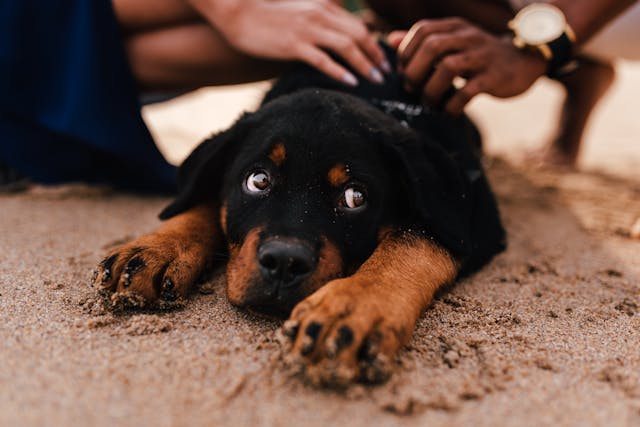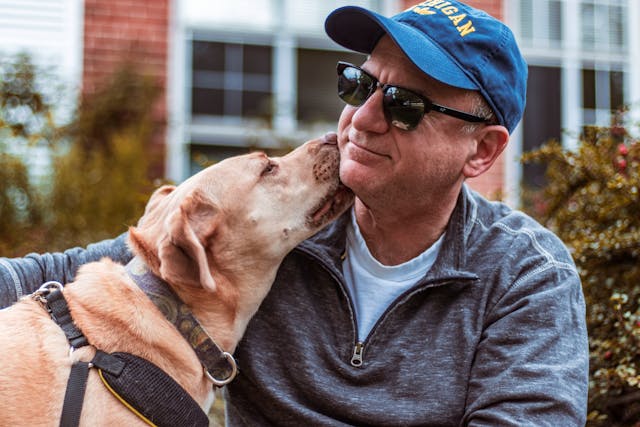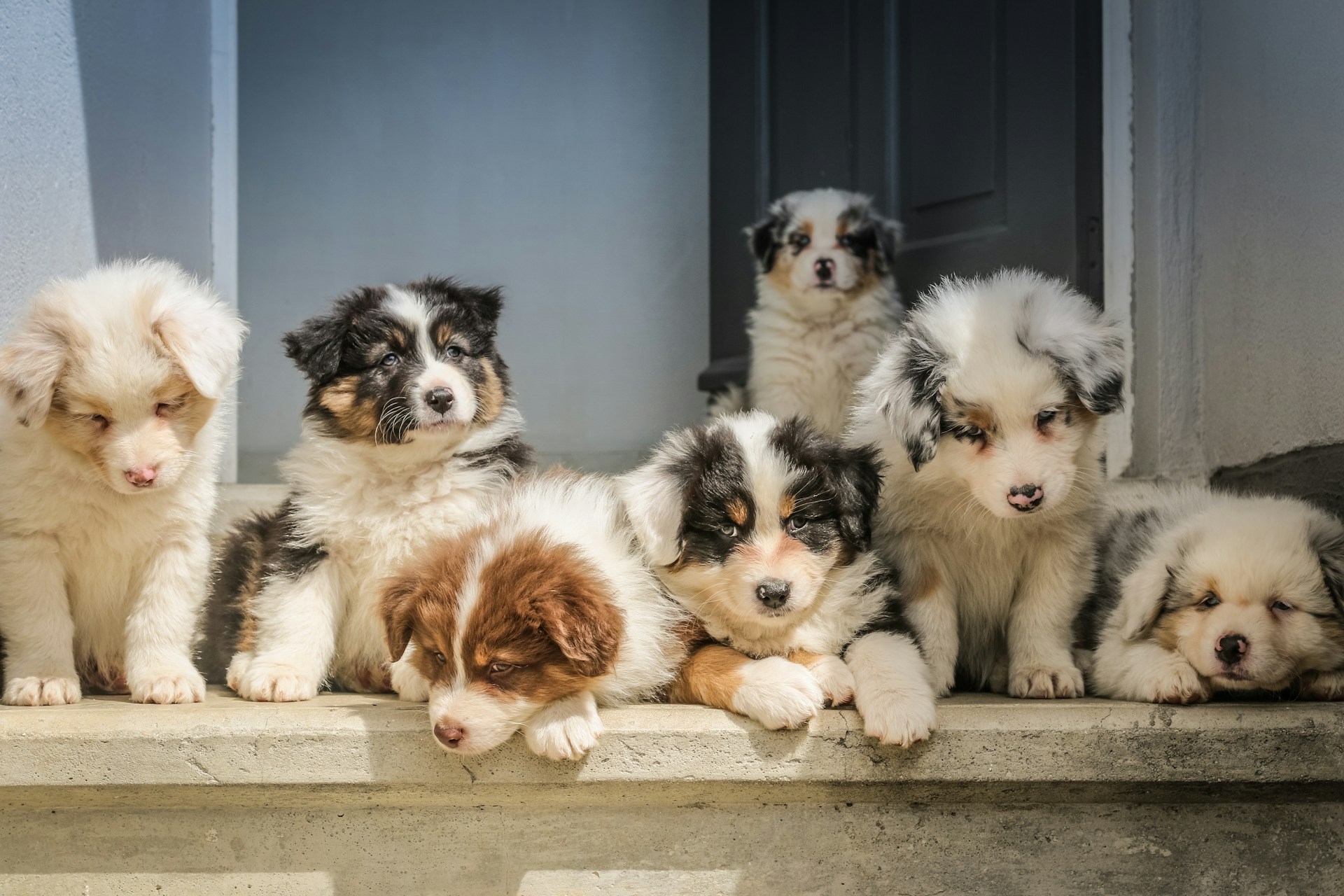Bringing a new puppy into your life is an exciting journey filled with joy, companionship, and plenty of adorable moments. Whether you’re a first-time pet owner or adding to your furry family, the decision to welcome a puppy requires careful consideration and preparation. In Las Vegas, finding the perfect puppy involves navigating through various options, from reputable breeders to adoption centers, each with its own set of considerations.
This guide aims to equip you with essential knowledge and practical advice on purchasing a puppy in Las Vegas in 2024. From understanding the responsibilities of pet ownership to making informed decisions about breed selection and healthcare, we’ll explore everything you need to know to ensure a smooth and fulfilling adoption process. Choosing the Right Puppy: Finding Your Perfect Match
Table of Contents
1. Researching Breed Compatibility
Choosing the right puppy involves more than falling in love with a cute face—it’s about finding a furry companion that fits seamlessly into your lifestyle. In Las Vegas, where the weather invites outdoor activities year-round, selecting a breed that matches your activity level and living situation is crucial.
2. Consider Your Lifestyle and Activity Level
Before bringing home a puppy, consider your daily routine and preferred activities. Are you an active individual who enjoys hiking, running, or spending time outdoors? Breeds like Labrador Retrievers, Border Collies, or Australian Shepherds thrive on physical activity and mental stimulation. Conversely, if you prefer quieter activities or have limited space, smaller breeds such as Shih Tzus, Cavalier King Charles Spaniels, or French Bulldogs may be more suitable.
3. Matching Size to Living Space
The size of your living space is another important factor to consider. While large breeds like Golden Retrievers or German Shepherds are known for their loyalty and affection, they require ample space to move around comfortably. If you live in a smaller apartment or condominium, smaller breeds like Dachshunds, Pugs, or Yorkshire Terriers can adapt well to limited space with proper exercise and mental stimulation.
4. Understanding Temperament and Energy Levels
Every puppy has a unique personality, so it’s essential to consider their temperament and energy level. Some breeds are known for being energetic and outgoing, while others may be more laid-back and reserved. Assessing your preferences for a puppy’s temperament can help ensure a harmonious match that aligns with your lifestyle and household dynamics.
5. Health Considerations and Allergies
Lastly, consider any allergies or specific health concerns that may influence your choice of breed. Some breeds are hypoallergenic or shed less, making them suitable for individuals with allergies. Additionally, research common health issues associated with the breed and discuss preventive care with prospective breeders or adoption centers.
6. Finding a Reputable Breeder or Adoption Center
When selecting a breeder, it’s essential to prioritize ethical practices and the health of the puppies. Look for breeders who prioritize the welfare of their dogs, provide clean and humane living conditions, and are transparent about the puppy’s health history. A reputable breeder will encourage visits to their facilities, allowing you to observe the puppies’ environment and interact with the parents to assess temperament and health.
Ask breeders about health certifications and screenings for genetic disorders relevant to the breed. Responsible breeders conduct health tests on their breeding dogs to minimize the risk of passing on hereditary health issues to puppies. They should also provide documentation of vaccinations, deworming treatments, and microchipping, ensuring the puppy is off to a healthy start.
Adopting from Shelters and Rescue Organizations
Adopting a puppy from a shelter or rescue organization not only provides a loving home to a dog in need but also supports efforts to reduce pet overpopulation. Shelters and rescues carefully assess each dog’s temperament and health before adoption, ensuring they match you with a puppy that fits your lifestyle and preferences.
Many shelters and rescues offer puppies that have already been vaccinated, spayed or neutered, and microchipped, which can save you time and money on initial veterinary expenses. Additionally, adopting from these organizations often includes valuable resources such as behavioral support and advice on transitioning your new puppy into your home.
7. Understanding Health Considerations and Vaccinations

Ensuring your new puppy’s health is in top shape from the start is essential for their well-being and longevity. In Las Vegas, where outdoor adventures and community activities abound, taking proactive steps in healthcare for your puppy is paramount.
Initial Veterinary Care
Immediately upon bringing your puppy home, schedule a visit to a trusted veterinarian. This initial check-up allows the vet to assess the puppy’s overall health, provide necessary vaccinations, and discuss a preventive healthcare plan tailored to your puppy’s breed and lifestyle. This is also an opportunity to address any questions or concerns you may have about your puppy’s health and behavior.
Importance of Vaccinations
Vaccinations are crucial in protecting your puppy from common infectious diseases. The 5-in-1 vaccine, which typically covers distemper, adenovirus type 2, parainfluenza, parvovirus, and canine coronavirus, is often administered in a series of shots starting at around 6-8 weeks of age. Regular vaccinations help build your puppy’s immunity and safeguard them against potentially life-threatening illnesses.
Ongoing Healthcare
In addition to vaccinations, your veterinarian will discuss other aspects of healthcare, such as parasite prevention (fleas, ticks, and worms), nutrition, and dental care. Establishing a regular schedule for check-ups and preventive care ensures your puppy stays healthy and happy throughout their life in Las Vegas’s dynamic environment.
8. Ethical Considerations in Purchasing a Puppy
When acquiring a puppy in Las Vegas, it’s crucial to prioritize ethical considerations to ensure the well-being of dogs and discourage irresponsible breeding practices.
Avoiding Puppy Mills
Puppy mills prioritize profit over the welfare of animals, often keeping them in crowded and unsanitary conditions. These facilities frequently disregard proper breeding practices and health screenings, leading to puppies with genetic disorders and behavioral issues. Avoid supporting puppy mills by choosing reputable breeders who prioritize the health and socialization of their dogs.
Shelters and Rescues
Consider adopting from shelters or rescue organizations where puppies in need of loving homes are often available. Adoption not only saves a life but also supports efforts to reduce pet overpopulation and promote responsible pet ownership.
9. How to Buy a Puppy Online Safely
Researching the Seller
Before committing to a purchase, thoroughly research the seller or breeder. Look for reviews and testimonials from previous customers, and verify their credentials and reputation. Reputable sellers will be transparent about their breeding practices, provide health certifications, and be willing to answer any questions you have about the puppy’s upbringing and health history.
Requesting Information and Documentation
Ask for recent photos and videos of the puppy, including interactions with littermates if possible. Request documentation of vaccinations, deworming treatments, and health checks performed by a licensed veterinarian. A trustworthy seller will gladly provide this information to ensure transparency and the well-being of the puppy.
Arranging a Visit or Video Call
Whenever possible, arrange to visit the seller’s location or schedule a video call to see the puppy live. This allows you to observe the puppy’s behavior, living conditions, and interaction with the seller. Avoid sellers who refuse visits or seem hesitant to provide additional information about the puppy.
Using Secure Payment Methods
Use secure payment methods, such as credit cards or payment platforms with buyer protection, to complete the transaction. Avoid wiring money or using unconventional payment methods that offer little recourse in case of a dispute or fraud.
Understanding Red Flags
Be cautious of sellers who pressure you to make a quick decision or offer unusually low prices for popular breeds. Verify the legitimacy of the seller’s claims and avoid transactions that seem too good to be true.
10. Questions to Ask the Breeder
When you’re ready to bring a new puppy into your home, choosing the right breeder is crucial. Asking the right questions will help ensure you’re getting a healthy, well-socialized puppy and supporting ethical breeding practices. Here are some key questions to ask:
Health and Genetics
- Can you provide documentation of health screenings and genetic testing for the puppy’s parents?
- What vaccinations has the puppy received, and can you provide a vaccination record?
- Are there any known health issues in the puppy’s lineage, and how are these managed?
Socialization and Temperament
- How are puppies socialized before they go to their new homes?
- Can I meet the puppy’s parents or see pictures/video of them?
Care and Support
- What diet is the puppy currently on, and what food do you recommend after adoption?
- Do you offer any support or advice after adoption, such as training tips or recommendations for veterinary care?
Ethics and Policies
- What is your breeding philosophy, and how do you ensure the well-being of your dogs and puppies?
- Can you provide references from other families who have adopted puppies from you?
Contracts and Guarantees
- Is there a health guarantee or return policy?
- What support does the breeder offer after the sale?
Conclusion
Bringing a new puppy into your home is an exciting and joyous occasion, but it also comes with significant responsibility. By following this guide, you’re well-equipped to make informed decisions throughout the process, from selecting the right breed to choosing a reputable breeder, and preparing your home for your new furry friend.
Remember, the journey doesn’t end when you bring your puppy home. Continuous care, training, and socialization are crucial for ensuring your puppy grows into a well-behaved and healthy adult dog. Embrace the experience with love and patience, and you’ll be rewarded with years of companionship and joy.
FAQs
1. How do I know if a breeder is reputable?
Look for breeders who are registered with national or regional kennel clubs, ask for references, and ensure they allow you to visit their facilities. A reputable breeder will also ask you questions to ensure you’re a good fit for their puppies.
2. What are the costs associated with buying and raising a puppy?
Initial costs include the purchase price, vaccinations, and supplies such as food, a bed, and toys. Ongoing costs include food, grooming, regular vet visits, and training. It’s important to budget for these expenses to ensure you can provide proper care for your puppy.
3. Should I adopt a puppy from a shelter or buy from a breeder?
Both options have their benefits. Adopting from a shelter can save a life and is often less expensive, while buying from a reputable breeder can ensure certain traits and health standards. Consider your preferences and do thorough research to make the best decision for your situation.
4. What are the most popular breeds in Las Vegas?
Popular breeds in Las Vegas include French Bulldogs, Labrador Retrievers, and Shih Tzus. These breeds are known for their adaptability to the climate and lifestyle in the city. Research each breed to find the one that best matches your living situation and activity level.
5. How can I prepare my home for a new puppy?
Puppy-proof your home by removing hazardous items, securing loose wires, and ensuring there are no small objects that could be swallowed. Set up a designated space for your puppy with a comfortable bed, food and water bowls, and toys. Have all necessary supplies ready before bringing your puppy home.





